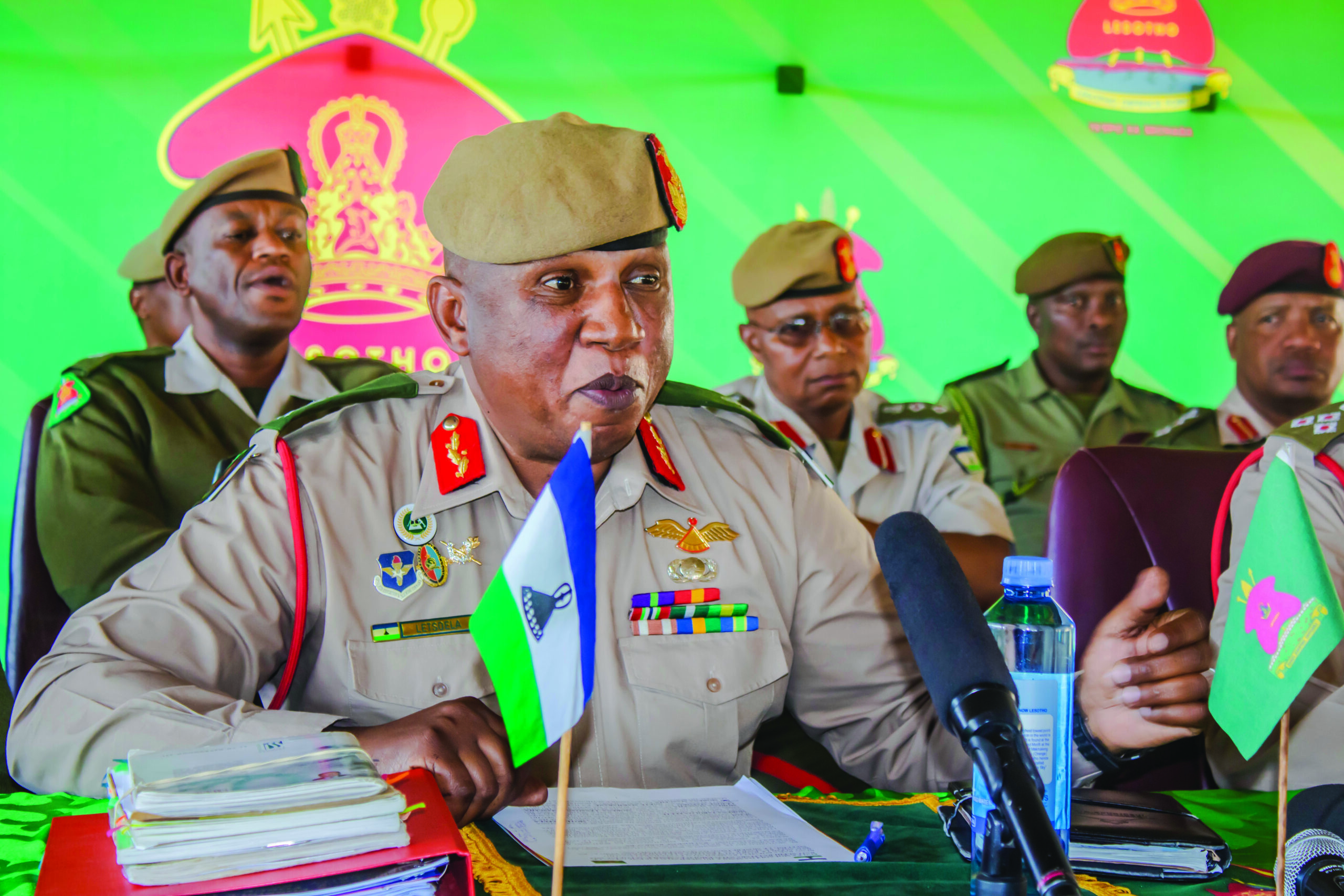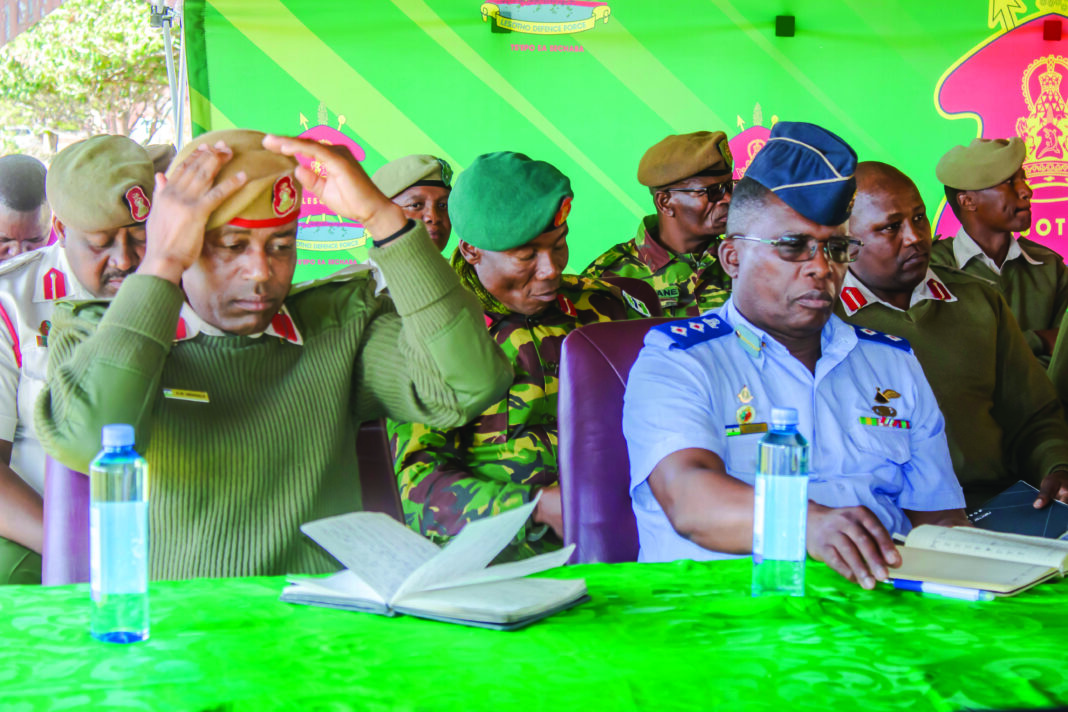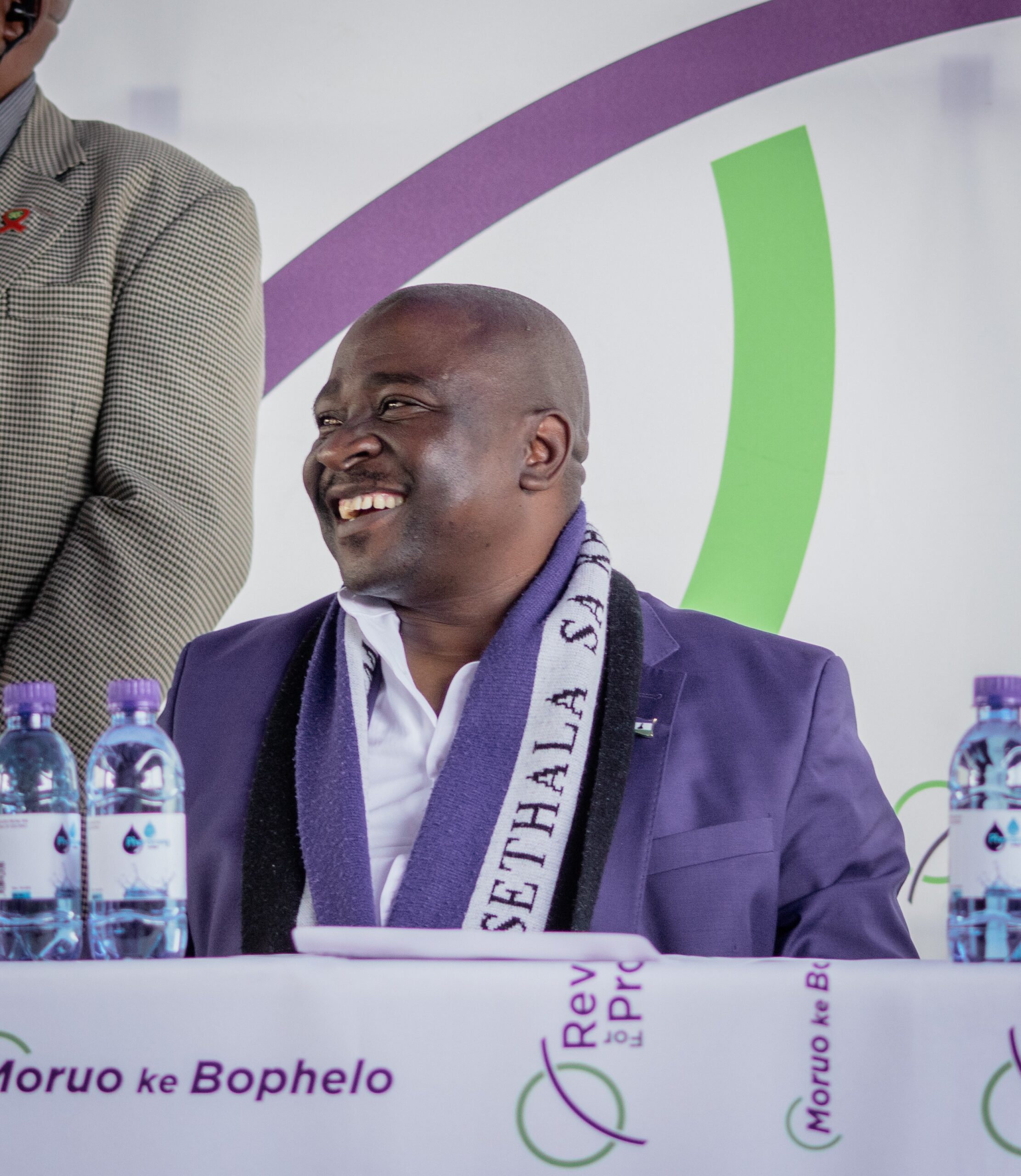Ntsoaki Motaung
Officers of the Lesotho Defence Force (LDF) have been suspended following the tragic deaths of two civilians during a military operation initially aimed at combatting “terrorism.”
The announcement came as LDF commander, Lieutenant General Mojalefa Letsoela, faced a parliamentary committee on the Prime Minister’s Cluster, where he was summoned to explain the fatal incidents that unfolded in Mosalamane, Khokhoba Ha Lebese.
During the operation, Lejone Mapoko and Nnete Lesoana Masupha were killed, while local leader Chief Lesaoana Masupha of Khokhoba was assaulted and remains in critical condition.
Letsoela, addressing the committee, described the operation, infamously dubbed “Operation Hard Fist,” meant to collect illegal firearms in the villages as a necessary response to an emerging wave of terrorism fueled by money and rampant violence.
“I agreed to the name of the operation because we are faced with terrorism,” he stated, emphasising that the mission was intended to protect citizens.
International scrutiny mounted as Amnesty International last week urged the Lesotho government to investigate allegations of torture and extrajudicial killings linked to the LDF’s campaign to confiscate illegal firearms from gang members.
The operation was launched earlier this year in response to rising violent crime and the proliferation of illegal firearms, with the army stating its intent to restore peace by targeting those in possession of unlicensed weapons.
Amnesty International’s deputy regional director for East and Southern Africa, Khanyo Farise, stated last week: “These incidents are the latest in a series of grave allegations about the conduct of LDF soldiers. Torturing and unlawfully killing people can never be justified, even in the context of a crackdown on gangs.
“Lesotho’s authorities must urgently investigate all incidents of torture and unlawful killings by the army, bring to justice anyone suspected to be responsible in fair trials and adequately compensate the victims and their families,” Farise added.
Despite the stated objectives of “Operation Hard Fist,” Letsoela’s defense of the operation unraveled when he admitted that the deaths of the two civilians were not part of the plan.
The LDF commander’s admission of responsibility raises serious questions about the military’s role in law enforcement, particularly when operations are poorly planned and executed.
“We take full responsibility for what happened,” Letsoela insisted, while also disclosing that the officers in charge would “have to account” for the tragic outcome.
The swift suspension of these commanders indicates a desperate attempt by the LDF to mitigate public outrage and assert that accountability is being pursued.
Yet, despite acknowledging the gravity of the situation, Letsoela’s statements during his testimony revealed a disturbing disconnect from the reality on the ground.
He conceded that the army was not suited for law enforcement tasks but insisted they were often compelled to act when the nation is under threat.
He also admitted that the army did not have any powers to arrest any civilian, yet simultaneously claimed a right to detain individuals for questioning.
This contradiction not only highlights the chaotic nature of military involvement in civil matters but also underscores a blatant disregard for human rights.
Speaking at a press conference held at Ratjomose Barracks on Wednesday, a day before his parliamentary testimony, Letsoela acknowledged that the army was ill-suited for law enforcement operations.
He emphasised the inseparable nature of human rights and national security, asserting that the two must coexist harmoniously.
“Human rights play a crucial role in guiding our interactions with one another,” he stated.
“We are not here to undermine those rights; rather, we are committed to protecting the most vulnerable among us against those who wield power. Just as the laws of motion illustrate, every action has a corresponding reaction, and what we put into the world will ultimately come back to us.”
At the same press conference, Sekonyela Mapetja, the executive director of the Lesotho Council of Non-Governmental Organisations (LCN), emphasised the absolute nature of the right to freedom from torture among all fundamental human rights, noting that this right holds a unique status compared to others.
Mapetja revealed that the commander will soon meet with the Committee on the Convention against Torture and the Commonwealth Secretariat.
“My heart bleeds when I consider that issues which should be resolved within our country are instead being discussed by external entities, whose resolutions are imposed upon us. It feels as though we are being controlled by others, despite our capacity to find solutions to our own problems,” he lamented.
He further explained that the LCN had refrained from issuing a public statement on this matter in hopes of having a private meeting with the LDF before taking the discussion public.
The parliamentary committee’s probing into Letsoela’s understanding of constitutional supremacy and the legal limitations of military power revealed glaring inadequacies in the LDF’s approach to civilian law enforcement.
Machesetsa Mofomobe, a member of the committee, pointedly questioned whether the army even understood its boundaries when it came to detaining civilians.

Letsoela reveals how terrorist plot was foiled
Lieutenant General Mojalefa Letsoela, Commander of the Lesotho Defence Force (LDF), delivered a gripping account yesterday of how a potential terrorist plot was foiled during a national event held on Moshoeshoe’s Day, March 11, this year, in Peka, Leribe.
Testifying before the Parliamentary Committee on the Prime Minister’s Cluster, Letsoela revealed the details of a planned assassination and how it was narrowly averted.
He told the committee that the horse-racing event was organised by a government ministry which he did not name, and as a national occasion, the army had to attend.
He said the guest list included a mysterious sponsor, whom he referred to simply as “Radebe,” with no further details.
“When I laid my eyes on this person, I had my doubts. I quickly ordered intelligence to take his picture and send it to South Africa. In no time, we had his full profile,” he revealed.
Turns out, “Radebe” was not just a sponsor with deep pockets, he had a far more nefarious role in mind. According to Letsoela, the event was meant to appear as part of the celebratory build-up to Lesotho’s 200th anniversary.
However, underneath the glitz and glamour of horse races and festivities, there was a sinister plan by some of the sponsors.
“There was a plot to kill one of the participants with horses at the event, just to undermine the authority present,” Letsoela disclosed.
Letsoela said the event was organised as if it was a build-up activity to many activities that were held in celebration of the 200 years but the motive by some of the sponsors was different.
His Majesty King Letsie III and Prime Minister Ntsokoane Samuel Matekane were both supposed to attend, adding even more gravity to the situation.
“I worked hard to suppress that intention from happening, and it didn’t,” Letsoela said.
He explained that before the event, the LDF had already conducted intelligence on the event’s sponsors
“We conducted thorough intelligence on the event’s sponsors, and we didn’t find any direct ties to batho ba Likobo(Famo gangs),” he said.
Letsoela also addressed the growing problem of gang involvement in Lesotho, revealing that even within the ranks of the LDF, some soldiers had unknowingly become entangled with criminal gangs, including the feared Famo groups.
“Two of our soldiers once skipped the country due to their gang connections,” Letsoela recounted, “but we tracked them down, and now they’re back, serving the country again.”
He explained how soldiers sometimes find themselves entangled with the gangs.
“In some cases, soldiers get associated with the gangs unaware, because some of the gang members are their family members. They ask for small favours, and next thing you know, they’re caught up in gang activities without realising it,” he explained.

Your Trusted Source for News and Insights in Lesotho!
At Newsday Media, we are passionate about delivering accurate, timely, and engaging news and multimedia content to our diverse audience. Founded with the vision of revolutionizing the media landscape in Lesotho, we have grown into a leading hybrid media company that blends traditional journalism with innovative digital platforms.











